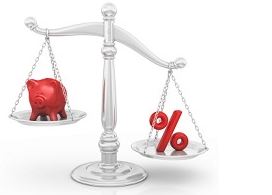by Derryl Hermanutz
Many small businesses that pay minimum wage — convenience stores and other independent retailers, little restaurants and fast food outlets, etc. — can’t afford to raise the wages they pay. These businesses are competing in an actual free market so they can’t just raise their prices to cover the higher labor costs. If they all raise their prices, customers will just stop coming, because their customers are not rich either. Many stores operate at break even or small money losses most months. Rent and utilities and wages consume all of the sales earnings, and more. The owner may be working for nothing, and the minimum wage employee is earning more than the owner.

In his 1948 paper, A Monetary and Fiscal Framework for Economic Stability, Milton Friedman advocated a negative income tax to put spendable money in the hands of poor people who spend all their income rather than save or invest it. This would stabilize demand for consumer goods. In the same paper Friedman — who was a student of monetary system reform advocate Irving Fisher — stated that governments should always issue, never borrow, the money they deficit spend.
Money is Credit Issued by Banks
Fisher and Friedman knew that the present money system is a commercial bank-issued credit/debt money system, not a government-issued fiat money system. In the present system, the government finances its deficit spending by issuing interest-bearing bonds that it sells to primary dealer banks. The banks “pay” for the bonds by crediting a brand new “bank deposit” into the government’s bank account. The government then has spendable “money in the bank”. The bank deposits “are the money”.
Commercial banks fund their lending and bond purchases by “creating” brand new credit/debt money. The credit-money that is issued by banks, is loaned against debt that is issued by private and government borrowers. The economy and the government use credit/debt money that is issued by commercial banks, not fiat money that is issued by governments.











Leave A Comment